
Die private Atmosphäre von Burg Gaillenreuth
ist besonders gut dazu geeignet
einen stilvollen Einstieg
in die Solopaartänze des Barock zu bekommen
oder um seine bisherigen Grundkenntnisse
der Barockchoreographien zu vertiefen.

Die private Atmosphäre von Burg Gaillenreuth
ist besonders gut dazu geeignet
einen stilvollen Einstieg
in die Solopaartänze des Barock zu bekommen
oder um seine bisherigen Grundkenntnisse
der Barockchoreographien zu vertiefen.

Auf dem Ball werden viele Tänze
aus dem bekannten Repertoire der Pemberley Players,
die alle auf dem Ball nocheinmal gezeigt werden.
Aber es sind auch einige darunter,
mit denen man sich ohne Vorbereitung
etwas schwerer tun wird.
Außerdem wird so der Ball umso
unbeschwerter und fröhlicher ablaufen.
Gerne sind aber auch Teilnehmer willkommen,
die am Ball selber nicht teilnehmen können
und diese reizenden Tänze lernen wollen.
Folgende Tänze werden gezeigt und geübt:
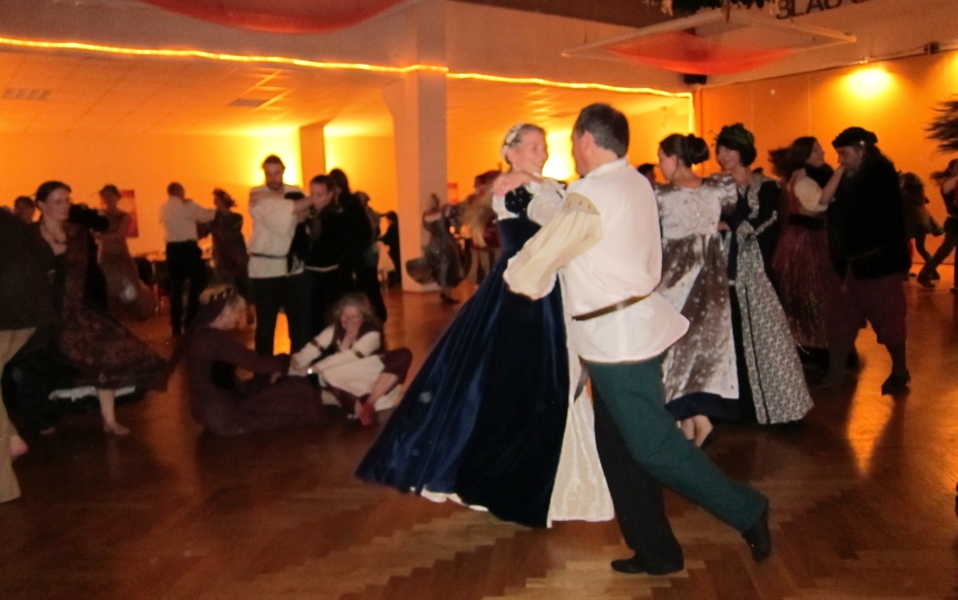
Hört ihr Leut und lasst euch sagen, die Uhr hat bald zum Tanz geschlagen!
Der Termin für das diesjährige Stadt-Land-Fest steht fest:
6. Oktober 2012
Weitere Infos unter: http://www.stadt-land-fest.de/

FREE Baroque classes in London.
Most Saturdays (4 August to 1 December) at the followinmg times:
- Beginners: 4.30-6pm (Open to musicians and dancers)
- Intermediate/advanced: 2-3.30pm
No previous experience required for beginners class.
Funded by the 'Awards for All Lottery Fund' and delivery by Ricardo Barros (Mercurius Company).
Classes take place at the modern and airy Westminster Academy, The Naim Dangoor Centre, 255 Harrow Road, London, W2 5EZ.

Dance scenes from the Nineteenth-century at Palazzo Blu)
Pisa, Palazzo Blu
Saturday 23 June 2012, h. 21-23
organized with the Fondazione Palazzo Blu and in 'Giugno Pisano' by Comune di Pisa
Scenes from a Nineteenth-Century ball in the historic Palazzo Blu
Social dance of European tradition of the romantic period
Waltz, quadrille, marsch, contredanse and mazurka
The 'Quadri di Danza da un ballo dell'Ottocento a Palazzo Blu' brings to life the sounds and atmosphere of an dancing evening in the beautiful setting of historic halls of the Palazzo Blu.
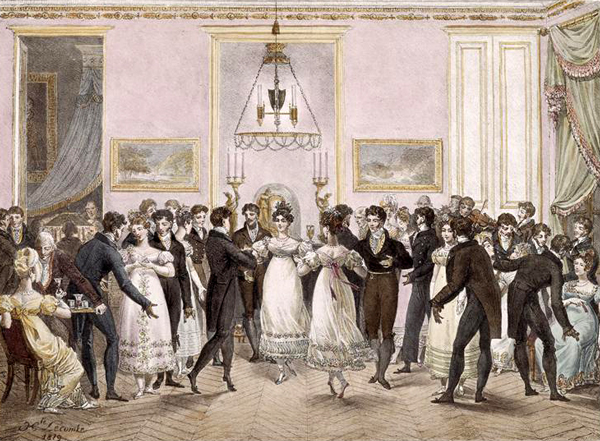
Verstand & Gefühl, Stolz & Vorurteil, Mansfieldpark, Emma
und die anderen Romane von Jane Austen stehen heute für die Zeit des Empire.
Oft als Trivialliteratur belächelt und verkannt
sind ihre Werke herausragende und fesselnde Zeugen einer Epoche.
Sie gehören mit zu den meistverfilmten Büchern und lieferten den Stoff für viele weitere.
Oft spielen Tanzszenen eine Schlüsselrolle in diesen Romanen.
Vor allem die Verfilmungen der BBC zeichnen sich dabei
durch die Verwendung originaler historische Tänze aus.
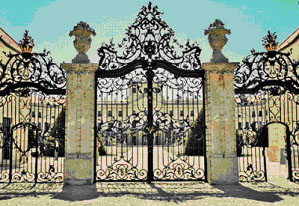
Szell Rita is going to teach in Hungarian, German and English country dances and basics of the baroque dance for the musicians, and La nouvelle Gaillarde (Pécour, 1709), Entrée a deux (1704), Entrée espagnole pour une femme (1704) for the beginner and intermediate dancers.
The workshops of dance and instruments are accompanied by concerts with Nance Argenta, Simon Standage, Erik Boosgraf, Capella Savaria among others.
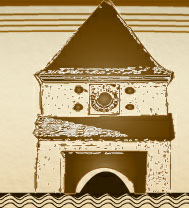
The teachers of the master classes are:
Ulrike Titze - baroque violin
Guido Titze - baroque oboe
Ilse L. Herbert - viola da gamba, basso continuo
Ramona Eremia - song
Szeplaki Zoltan - flute
Kasza Roland - percussion
Fulop Maria - harpsichord
Kovacs Gabor - dance
Further information, booking on-line:
http://www.musica-antiqua-hr.ro
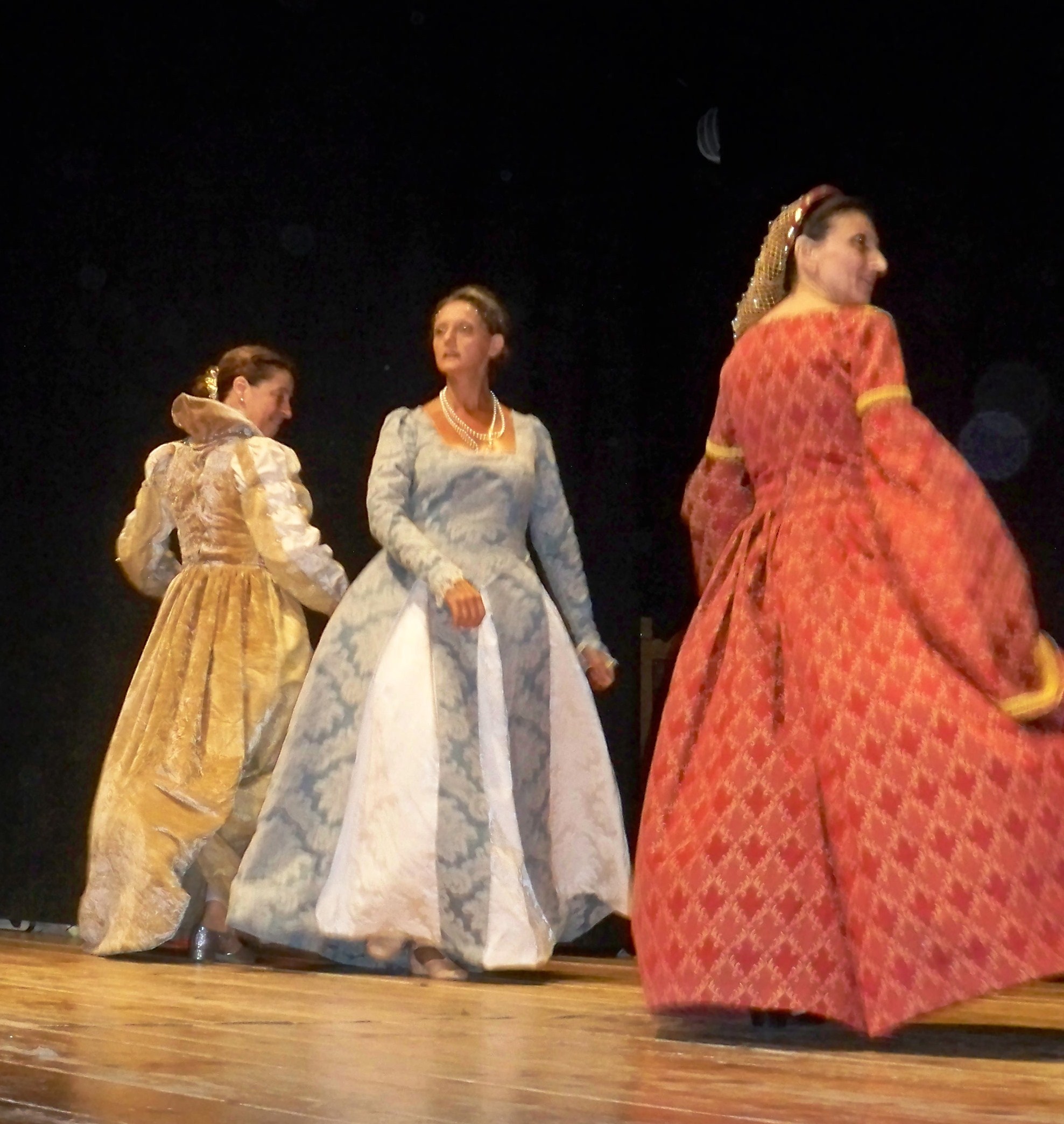
Fancy a fun class of XVI Century Italian courtly Dance?
Keen to discover what dances the courtiers would have enjoyed to celebrate marriages and dynastic celebrations of Italian court life?
Step back in time an join this master class of historical dance on Sunday 17th June, 11am - 2pm at The Place, 16 Flaxman Terrace London.
Beginners welcome.
Tutor: Simona Cavaliere
Please contact Simona on:
07717.269.796 or info@futureforthearts.co.uk
Fee: £15/£10 concs
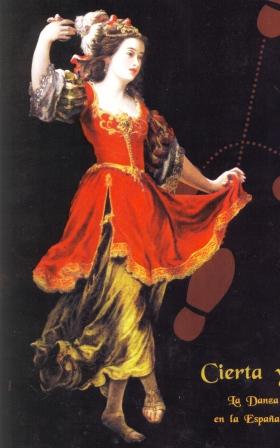
Programa:
Caroso da Sarmoneta, Fabritio (maestro de Danzar de la Virreina de Nápoles): Il Ballarino (Venecia, 1581)
- Canario
Jaque, Juan Antonio: "Libro de Danzar de D. Balthasar de Rojas Pantoja", Mss. del Siglo XVIII custodiado en la Biblioteca Nacional de España.
- Gallarda de España
- Jácaras.
La Danza Española en el periodo Barroco está conformada por las obras de repertorio que, siendo las más arcaicas que se conocen, son al mismo tiempo las raíces de otras muchas que hoy perviven en los escenarios.